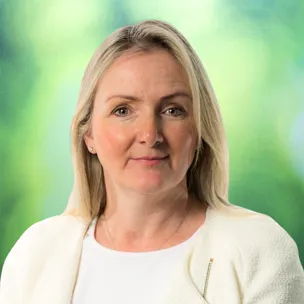How is the Business Valued in Divorce?
If you have shared business interests, either you or your former partner can arrange a valuation to determine how much the business is actually worth.
If just one of you owns the business then it’s best to have the business valued by an accountant who should be instructed by both of you in order to complete a formal valuation.
The value will depend on:
- The business’s assets, such as any buildings and stock owned
- Its earnings and the structure
- Whether it’s a limited company, sole trader or partnership
In light of this, it’s important to understand the different types of business structure, especially if you haven’t been involved in the business. If you have been, you’re likely to already know this but if you weren’t involved in starting or running the business, you may not know how it has been set up.
However, it’s important to bear in mind that using experts to help you get a true value of the business can be expensive. In some cases, people have spent thousands of pounds on specialist accountants. But this might be the only option if your former partner is being uncooperative or provides a particularly low valuation.
It’s unfortunately not uncommon for couples who are divorcing to disagree about how much a business is worth, especially if only one partner has been involved in it. In some circumstances, one partner may feel that the business owner may have undervalued their business.
Alternatively, sometimes business owners can be optimistic about their own business, and you might have been led to believe it was much more profitable than it really is. It’s important to acknowledge the lack of certainty in business sometimes. For example, it may be that the fortunes of the business might have taken a turn for the worse recently or just because the business was doing well last year, or the year before, but that doesn’t mean it’ll be doing well now.
What if I Don’t Agree with the Value?
If you don’t agree with the valuation that your former partner has provided, you can apply to the Court to get a formal valuation. Once the joint accountant has valued the business, they will let you know what the basis of their valuation is.
Additionally, if you’re using a solicitor, you can ask them to look at the company’s books to see if it’s worth investigating further. This could prevent any further costs from being incurred through making an application to the Court for a formal valuation in the event that the valuation ends up being inaccurate.
In most cases, the business interest will stay with the person who runs the business day to day, and the other divorcee will get a larger share of the other marital assets or a structured settlement where you may be paid in instalments.
By compromising in this way, you can avoid the sale of a business and a loss of income for you as a business owner.
You should always get independent legal advice when considering a separation and it’s so important that assets are properly valued to make sure it’s a fair split. There will usually be Capital Gains Tax considerations to think about so the timing of the separation can be crucial.
Capital Gains Tax is a tax on the profit when you sell an asset that’s increased in value. It’s the actual gain which is taxed, not the amount of money that you receive. Some assets are tax free however and you don’t have to pay Capital Gains Tax if all of your gains in a year are under your tax-free allowance.
Mediation
To avoid any Court proceedings or applications to the Court, it may be that you and your former partner decide to look into mediation or other forms of dispute resolution methods instead of looking to business or financial experts to resolve your dispute.
This can be beneficial for both you and your former partner because when matters are taken to Court, the Court has a very wide discretion in determining how the assets are divided. There’s no accurate calculator or calculation which can be done to help to determine this which means that there’s absolutely no certainty on what the outcome will be when a Court becomes involved.
In practice, it is extremely unlikely that the Court would order the business to be sold or for the other party to be given a direct interest. The more common approach is for the business to be retained by one party and for the other spouse to receive other assets instead. The family business is usually the main source of financial support for the family and for this reason it will be preserved wherever possible.
However, to avoid any risk of this, mediation may be a positive way to sort out the practical issues associated with your divorce, including the division of the family business. This can also avoid extensive legal fees from being incurred and prevents the need to have a long and drawn-out court battle. In mediation, professional family mediators can help you work out what happens when you separate by listening to you and your former partner explain your concerns and views to help you both to reach an agreement suitable for everyone.
However, every business is different and so is every divorce. Our specialist Family Law Solicitors can advise you on a fair financial settlement based on your circumstances so that you get the right outcome for you and your family.
Everyone’s situation is different and there’s not one size that fits all, which is why we recommend getting legal advice from a Divorce Solicitor who can advise you based on your situation.
Whatever your situation is, we can help you to find the best way of amicably bringing your relationship to an end while protecting your finances and assets for the rest of your life. Our expert legal advice will always be personal and tailored to you and your family.
We offer a variety of options for appointments including telephone and video calls - whatever suits you best. We’re here to support you and make the process as easy as possible for you. You will be fully supported throughout the divorce process and we will deal with your former partner or their Divorce Solicitor and the Court. This takes the pressure off you, so that you can take care of yourself and your family.
To contact one of our expert Divorce Solicitors, please call our friendly and helpful team today on 0808 239 3465 who will be more than happy to help. Alternatively, you can request a call back.









